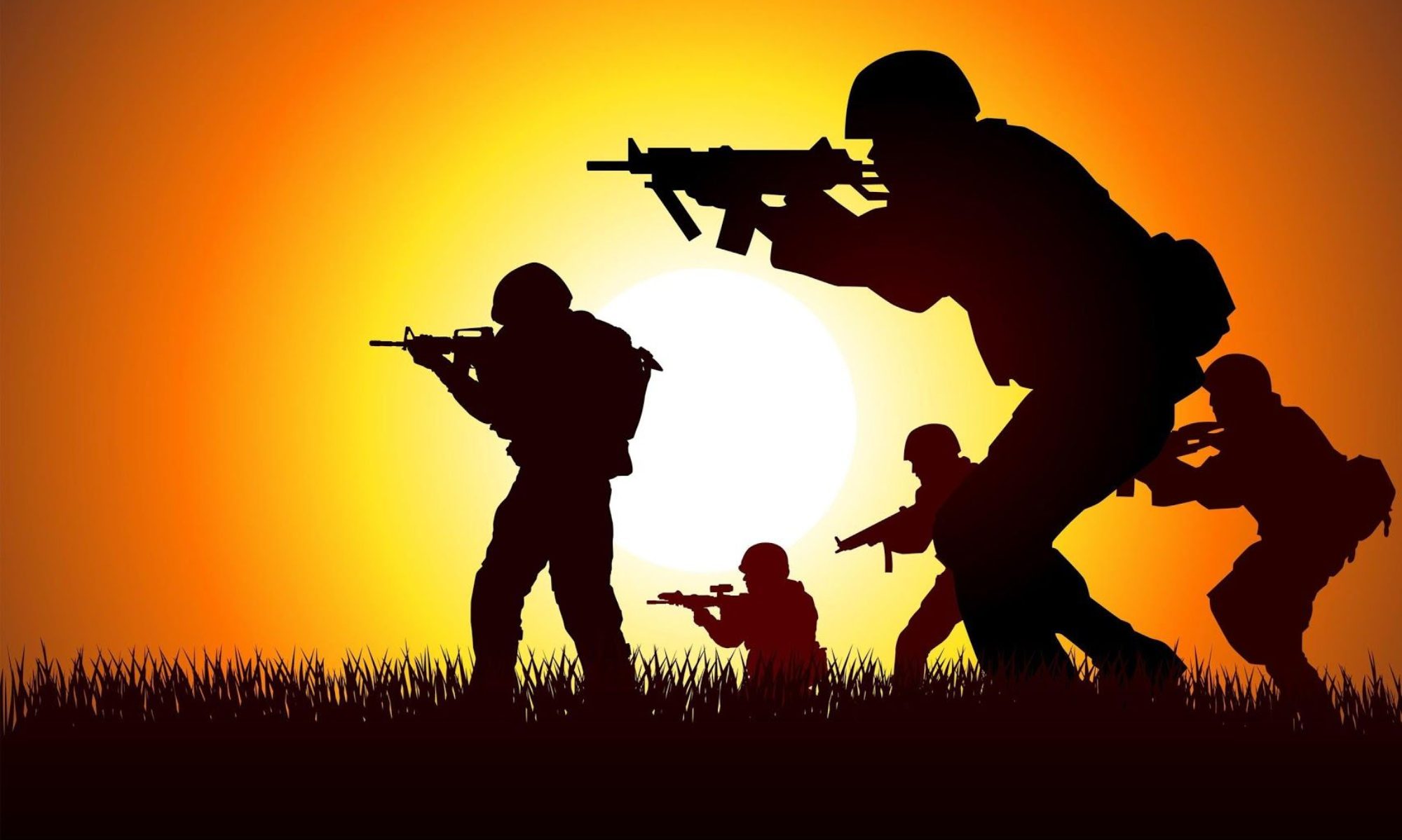Thanks to all of you who have been joining me here. We help bring change to lives. The response has been wonderful.
We Made it to 5,000! Never dreamed we would do that. Thank you so much for the support. It also excites us that you are supporting veterans. That is our theme here right now.
Help us make it to 6,000 by subscribing today if you haven’t already. This shows you care for veterans. Just click on the icon right after the title of this post and click on FEEDBLITZ , and the posts will come straight to your inbox. ____________________________________________________________
Doug Bolton, the founder of the blog, Signs of Hope, which is at www.dailysignsofhope.com, has written a new book, “Signs of Hope for the Military: In and Out of the Trenches of Life.” It reaches out the many military and veterans who may be battling anxiety, fear, depression, addictions, rejections, and the many other usual suspects. There are 22 military connected suicides every day. That is almost one every hour. Doug wants to help stop those statistics.
______________________________________________________________
This is a new social network just for veterans. I joined it and made instant friendships with veterans who want to talk about what I want to talk about. Please check it out. You will be glad you did.
https://www.rallypoint.com/join/spc-douglas-bolton
____________________________________________________
The National Veterans Wheelchair Games are coming to Seattle.
The year was 1987. Seriously injured in a car accident while on active duty with the U.S. Army, then 18-year-old Veteran Jimmy Green was paralyzed from the waist down and thought his life was over.
Nine years later, he would find new life when he was introduced to the National Veterans Wheelchair Games in Seattle, Wash., by a Paralyzed Veterans of America National Service Officer. He says the experience redefined him and gave his life purpose.
____________________________________________________
Here are some articles that are helping veterans
Recreational therapists play an important role in providing service to Veteran patients in a variety of ways.
“Helping Veterans take part in the things they enjoy is crucial for, not just their physical health, but their mental health,” said Lin Hales, Lead Recreation Therapist, Bay Pines VAHCS
“When someone is unable to physically take part in meaningful leisure pursuits, it can lead them to questioning their purpose and abilities in other aspects of life. Our program focusses on helping Veterans realize what they can do, instead of what they can’t,” she continued.
One of the ways in which recreation therapy helps Veterans realize their potential is through patient education.
“We provide Veterans with resources to a variety of materials and equipment, showing them that adaptations can be made to the activities they enjoy,” Hales said.
Fencing is great therapy and rehabilitation for Hayes. She credits her recent success to practicing the sport two to four times per week.
Recreational therapists play an important role in providing service to Veteran patients in a variety of ways.
“Helping Veterans take part in the things they enjoy is crucial for, not just their physical health, but their mental health,” said Lin Hales, Lead Recreation Therapist, Bay Pines VAHCS
“When someone is unable to physically take part in meaningful leisure pursuits, it can lead them to questioning their purpose and abilities in other aspects of life. Our program focusses on helping Veterans realize what they can do, instead of what they can’t,” she continued.
One of the ways in which recreation therapy helps Veterans realize their potential is through patient education.
“We provide Veterans with resources to a variety of materials and equipment, showing them that adaptations can be made to the activities they enjoy,” Hales said.
Fencing is great therapy and rehabilitation for Hayes. She credits her recent success to practicing the sport two to four times per week.
________________________________________________________
VA’s top 5 tips for a successful job interview
When it comes to interviews, planning is essential to success. Not only does it demonstrate professionalism, it also puts you in a position to be prepared and at your best. So when you have your next interview scheduled, follow these tips and be ready to impress:
1. Be Prepared. Before walking into the interview, review your resume and the job requirements to align yourself on your strengths, weaknesses, skills and experiences. Be ready to speak to what you can bring to the position, as well as what you hope to learn on the job.
2. Know the Organization. Use sites like Glassdoor to do some research on the organization, visit the company’s social pages and talk to others about their personal experiences before going in for an interview.
3. Look Your Best. Making a good first impression is crucial when interviewing for a job. Using what you know about the organization, get a feel for the office environment and dress appropriately. When in doubt, being overdressed is better than underdressed.
4. Be Enthusiastic. Speak clearly when making introductions and answering questions, and listen closely to the interviewer. Nerves can sometimes get in the way, but the best way to show you are interested in a role is to be engaged and excited.
5. Be Honest and Be Yourself. This one is key. Make sure the job is the right fit for you by simply being yourself and being honest about your intentions and goals.
______________________________________________
I hope every one of you doing well. You are special. If you are a veteran, or a family member of a veteran THANK YOU!
If you are feeling down, and the dark side seems to be pulling you down, never, ever, give up! Get help. There is a helpline for you 42/7:
1-800-273-8255
Remember:
You are never alone.
You are never forsaken.
You are never unloved.
And above all….never, ever, give up!!
